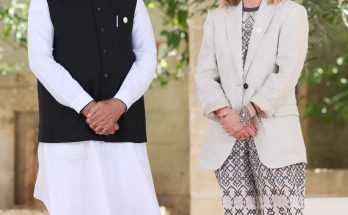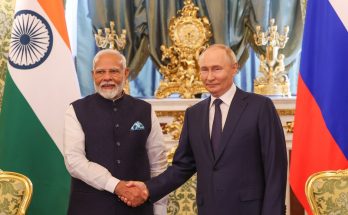
In the wake of growing concerns over economic weaponization and calls for de-risking growing louder across the globe, India’s External Affairs Minister S. Jaishankar has called for building ‘deep national strengths’ to drive India’s journey to a leading power amidst a fast-changing geoeconomic landscape.
“As the most populous country that will be third largest economy by the end of the decade, our goals and ambitions cannot be determined by the goodwill of others. We must build deep national strengths during the Amrit Kaal that will drive the transition towards a developed economy and a leading power,” he said at the 8th Asia Economic Dialogue, held in Pune, Maharashtra.
The Asia Economic Dialogue is the flagship geo-economics conference of the Ministry of External Affairs, India, jointly hosted with the Pune International Centre, an independent think tank. This year’s dialogue focused on “geo-economic challenges in an era of flux,” where 46 speakers from 11 countries contributed over a three-day dialogue.
“Everyone believes that the 21st century is going to become Asia’s century, and therefore, the Asia Economic Dialogue becomes important. In fact, some have started calling this dialogue ‘the Davos of the East,’” said Dr. Raghunath Mashelkar, President, PIC.
The conference’s purpose is to bolster cooperation between Asian, particularly South Asian, states to find solutions to contemporary challenges by bringing experts together from across the region. It also aims to bring India’s small neighbour’s trade priorities closer to those of India.
Mr Jaishankar delivered an impactful and focused address, emphasizing three big challenges:
Supply-Chain Challenge: Whether it’s finished products, intermediates, or components, resilience and reliability are crucial for de-risking the global economy. Diversifying sourcing options is essential to mitigate vulnerabilities. The world needs to work on “introducing greater resilience and reliability is today central to de-risking the global economy. All of us need more options and must work to create them,” he said, pointing to the world’s economic hardwiring – shaped by globalization, which has led to dangerous dependence on a limited number of suppliers.
Technology Challenge: In the digital era, technology plays an intrusive role in our lives. As personal interests and decisions are at stake, it demands more accountability. Technology providers must prioritise these aspects to build a safer and more secure environment. “Such an era demands more trust and transparency,” he said.
Over-Concentration Challenge: Globalization has led to over-concentrations, heightened by unpredictability and opaqueness. The Covid pandemic also exposed the vulnerabilities of market dominance. “We are also reminded when market dominance is weaponized. For the Global South, this is particularly serious given the extent of dependence,” added Jaishankar, underscoring the higher risk factor for the Global South.
Jaishankar highlighted the significance of critical and emerging technologies, including AI, EVs, chips, and green technologies. These technologies shape the future global order, transcending mere economic advantage. To address these challenges, he advocated for greater international cooperation, emphasizing the need to mitigate unilateral demands, economic domination, and technology assertions.
“These three phenomena come together particularly impactfully when we consider the evolution of critical and emerging technologies. And we all know that this is indeed the era of AI, EVs, Chips, Green and Clean technologies. What we are confronting is no longer a matter of comparative economic advantage, if it was ever that. We are actually talking about the future of the global order,” said Mr Jaishankar.
“As the most populous country that will be third largest economy by the end of the decade, our goals and ambitions cannot be determined by the goodwill of others. We must build deep national strengths during the Amrit Kaal that will drive the transition towards a developed economy and a leading power,” he added. For India, building comprehensive national power involves several domains. It includes skills base upgrade, promoting start-ups and talent, easier business environment, and robust manufacturing.
He admitted that there are no simple solutions to these glaring issues. However, global cooperation should be at the fore while mitigating these risks, he stressed. “To create a more safe, secure and cooperative world, we clearly need greater international cooperation. Only that can serve to mitigate unilateral demands, economic domination or technology assertions. For India, this means moving across a broad front of domains that all contribute to comprehensive national power,” he said.
“Mr Jaishankar’s remarks outline a plan to accelerate India’s ascent as a leading power. The expression “leading power” is significant as India earlier was seen as reactive, and not a proactive shaper of the global agenda,” said Manish Chand, Director, Centre for Global India Insights, a think tank focused on global affairs. Technology will play a pivotal role in the emergence of India as a leading power, he added. In days to come, India’s leading power status will be buttressed by expanding cooperation with countries of the Global South, part of India’s projection as “Vishwamitra,” a friend of the world, said Mr Chand, foreign policy expert and author.
(Deepakshi Bhardwaj contributed inputs for this article. Edited by Shweta Aggarwal)
Author Profile
- India Writes Network (www.indiawrites.org) is an emerging think tank and a media-publishing company focused on international affairs & the India Story. Centre for Global India Insights is the research arm of India Writes Network. To subscribe to India and the World, write to editor@indiawrites.org. A venture of TGII Media Private Limited, a leading media, publishing and consultancy company, IWN has carved a niche for balanced and exhaustive reporting and analysis of international affairs. Eminent personalities, politicians, diplomats, authors, strategy gurus and news-makers have contributed to India Writes Network, as also “India and the World,” a magazine focused on global affairs.
Latest entries
 In ConversationJuly 26, 2024India-Italy defence collaboration can extend to third countries: Anil Wadhwa
In ConversationJuly 26, 2024India-Italy defence collaboration can extend to third countries: Anil Wadhwa In ConversationJuly 23, 2024Italy views India as a key partner in Indo-Pacific: Vani Rao
In ConversationJuly 23, 2024Italy views India as a key partner in Indo-Pacific: Vani Rao DiplomacyJune 29, 2024First BRICS unveils a roadmap for boosting tourism among emerging economies
DiplomacyJune 29, 2024First BRICS unveils a roadmap for boosting tourism among emerging economies India and the WorldJune 11, 2024On Day 1, Jaishankar focuses on resolving standoff with China
India and the WorldJune 11, 2024On Day 1, Jaishankar focuses on resolving standoff with China






